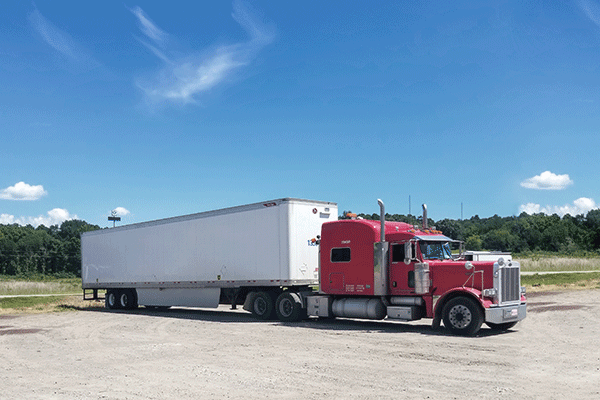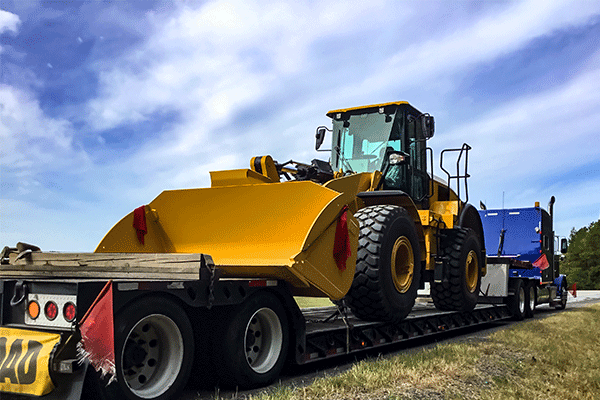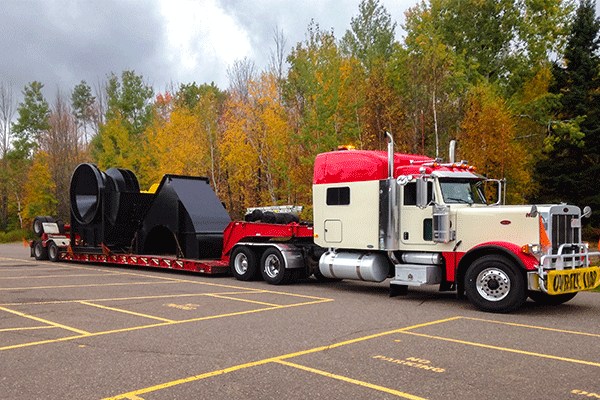Your freight shipment failed again. Your truck didn’t show up, your freight didn’t make it on time, and your relationship with your customer is struggling. Every time you ask your transportation partner why this is happening they give you a different answer and you want to know why.
Having your shipment fall through is frustrating and it can be difficult to understand why this is happening. Here at ATS, we’ve been in the shipping industry since 1955 so we understand that sometimes, loads fail.
Although this should always be avoided where possible, knowing the most common reasons a load fails will help you avoid them as you continue to move freight in the future.
The top ten reasons why a freight shipment might fail, in no particular order, are:
- Inclement weather
- Transportation equipment breakdowns
- Interstate/highway congestion
- Truck driver hours of service regulations
- Trucking industry capacity restrictions
- Unreasonable expectations from a shipper
- Overcommitment from a provider
- Communication issues
- Inexperienced shippers and providers
- Human error
1. Inclement Weather
Anytime there are severe weather events such as snowstorms, hail, severe winds, dust storms and/or heavy rain, a truck driver’s safety would be in jeopardy if they were to follow through on your load. In these situations, your freight may end up on the back burner in the interest of keeping these individuals safe.
The unpredictable nature of these events and the high level of disruption they cause make them hard to plan for and difficult to manage when they occur. As such, abnormal climatic events, although unfortunate, must be handled appropriately.
Sometimes this means that your freight shipment can’t be moved on your schedule since doing so is not possible at that moment.
Related: How Does Winter Weather Impact The Trucking Industry?
2. Transportation Equipment Breakdowns
Semi-trucks and their trailers are man-made machines.
Although drivers take care of their trucks to ensure that they’re in the best possible condition when hauling freight, breakdowns do happen. Engine issues, tire troubles, brake malfunctions and alternator errors — among other things — arise with these diesel-powered, 25,000-pound, machines.
Because of this, even if everything else is going smoothly, a truck might break down on its way to haul your freight — leaving you and your transportation provider scrambling for a last-minute solution to this issue.
Although the best partners will work to find you a solution, your shipment may end up failing due to the simple fact that the semi-truck — the conduit for your freight — breaks.
3. Interstate/Highway Congestion
As odd as it may seem, sometimes — when not properly planned for — a load may fail because of traffic. If you’re a shipper whose freight needs to be picked at a specific time of day, traffic could make this difficult.
Due to road construction, traffic jams, and motor vehicle accidents, congested highways can sometimes prevent your transportation solution from making it to your facility.
These instances, where crowded roads result in your shipment falling through — although frustrating — do happen. When congested highways result in your trucking solution falling through, a good transportation provider will work with you to find you a quick fix and get your freight back on track.
4. Truck Driver Hours of Service Regulations
Truck drivers are only allowed to be actively on duty for 14 hours within 24 hours. This 14-hour clock starts every time they enter their tractor in the morning and ends exactly 14-hours later. As such, drivers need to make the most of this time. If they’re stuck in traffic or need to “deadhead” a long way to get to your shipment, they’re burning the hours from their clock as they commute to your place of operation.
The adoption of electronic logging devices has increased the visibility of how well drivers are following these hours of service regulations. To maintain their CSA scores and reputations, drivers must follow the Federal Motor Carrier Safety Administration’s hours of service guidelines.
Sometimes — when a trucker’s hours of service are mismanaged — they run out of operational hours on the way to a shipper’s facility. In these situations, a load may fail simply because the trucker assigned to that load ran out of hours. In this situation, all parties need to wait for 10 continuous hours while a trucker’s clock resets.
Note: even when a truck driver is sitting around waiting for his/her trailer to be loaded, their clock is running. Because of this, shippers need to be cognizant of their loading times so that their driver’s clock doesn’t run out while he’s/she's waiting to leave.
5. Trucking Industry Capacity Restrictions
Today’s trucking industry is experiencing severe deficiencies in available capacity.
Although the amount of demand for trucking services hasn’t slowed, the supply of these services has. Truck drivers are in short supply and there’s not enough of them to meet demand.
This has led to a steady uptick in the cost of getting freight moved and — if you’re a shipper who’s unwilling to pay the price needed to execute a shipment — you’ll have a hard time finding capacity. In markets like this, truck drivers hold the reigns as they’re able to pick and choose which loads they service. In turn, this results in a steady stream of loads priced higher than normal to help ensure that a truck is available.
This high demand for capacity and increased pricing cause shipments to fall through as trucks are hard to come by at the worn-out price points of years past.
6. Unreasonable Expectations From a Shipper
Unreasonable expectations on the part of a shipper are another reason a freight shipment may fail. Sometimes, getting a shipment out their door on their schedule — especially when urgency is high — is simply impossible.
Here’s an example:
For a shipper in Tulsa, Oklahoma, to tell their transportation provider they need a truck to pick up their freight on Tuesday and get it to their customer in Albany, New York, one day later is unreasonable. This trip — which measures a distance of 1,419 miles — simply can’t be completed given that time frame even when using expedited services.
In these situations, unreasonable expectations cause shipments to fail because they literally cannot be completed as requested. As such, shippers must learn the importance of maintaining proper expectations for their shipments and plan accordingly.
7. Overcommitment By a Transportation Provider
The transportation industry is incredibly fast-paced. With shipment requests coming in from all angles sometimes providers over-commit themselves. Some carriers say “yes” too often.
And, when it comes time to move a shipper’s load these companies can't follow through.
Although this is usually the case with smaller operations — who have fewer resources at their disposal — sometimes even the larger companies have these issues.
In these instances, loads fail because a provider said “yes” to a shipment they thought they could cover at the time but — when it’s time to get the freight moving — they’re simply too overcommitted to do so.
8. Communication Issues
If you’ve ever played the game of telephone, you know that sometimes — with too many barriers present — clear and accurate communication between parties can be an issue.
This is also the case when it comes to transporting freight. If there are too many stakeholders involved and the communication between each stakeholder is shoddy, issues can occur.
Unfortunately, insufficient communication quality can lead to shipment failure as information like pick up date/time, pick up location, drop off destination, drop off date/time and equipment type needed, become foggy. These situations, which ultimately lead to a load failing, are easily avoidable as long as communication is clear and comprehensive from the beginning.
9. Inexperienced Shippers and Transportation Providers
No one is born knowing how to facilitate the successful transportation of freight from one point to another. This process is complex and takes practiced hands, developed through repetition, trial and error, and experience.
Often, a shipment fails because neither the shipper nor their provider have the skills needed to adequately service a shipment. In short, they don’t know what they’re doing or how much time and resources they’ll need to do it.
Plus, inexperience moving a specific type of freight like temperature-controlled commodities or oversized loads — or just shipping freight in general — results in a shipment failing.
This is where — for an inexperienced shipper — selecting a seasoned transportation provider with a demonstrated history of moving their product(s) can pay dividends.
10. Human Error
We’re all human and humans are prone to error. No one’s perfect and sometimes things happen. Be it due to a lack of attentiveness, overstimulation or a momentary lapse in judgment, shipments will fail because of human error.
Maybe a load’s route is incorrectly reported, important information is lost in communication or some important aspect of the freight transportation isn’t handled, these human errors can result in a load falling through.
As a shipper, you should always choose a partner that has a long history of coming through for their customers and owning up to their mistakes when they do occur.
How To Avoid These Issues
Now you have a better understanding of the top 10 reasons a load might fail. If you stick with the industry long enough, each of these situations will likely impact your business, though choosing the correct transportation partner can certainly help you avoid having these issues appear frequently.
To help you do this, make sure to watch this video where ATS Logistics, Sales Director Crystal and Associate Regional Sales Operations Director, Derik, explain the top 7 things to consider when selecting a freight broker.
This will give you a better idea of how the right brokerage can be the partner you’re looking for. The more information you have, the better off you’ll be to successfully move your freight in the future. As always, if you’d like to know how ATS can assist you with your next shipment, please reach out.








